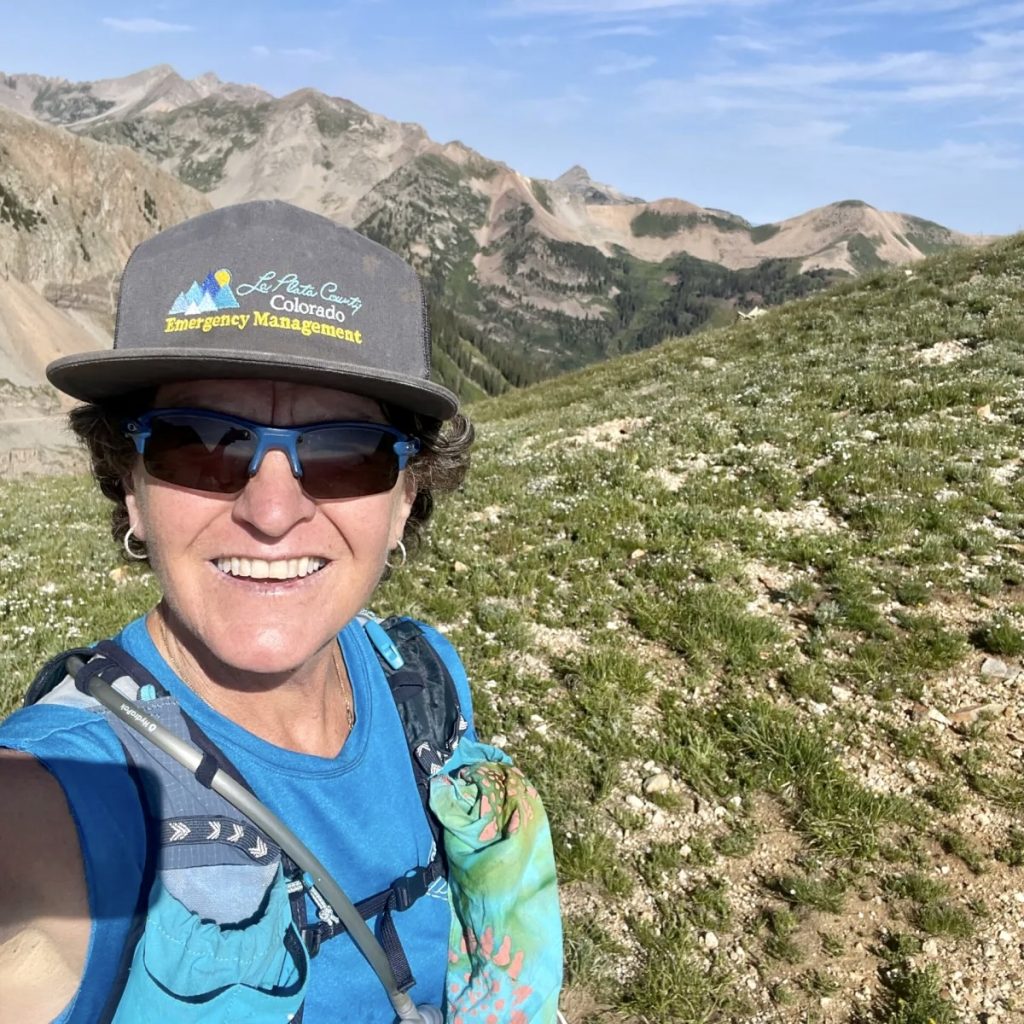Writers on the Range: Rural Colorado county gets ready for wildfire
Writers on the Range

Courtesy Photo
When La Plata County in southwestern Colorado needed a director of emergency management in 2021, they found a winner in Shawna Legarza. An experienced firefighter, her career has spanned battling big fires on the ground to overseeing federal firefighting across several states.
Now, she’s helping Durango, population 19,000, and others in the county to prepare for the inevitable approach of wildfire. During the week of April 20, more than 40 neighborhoods will participate in mock evacuations, responding to an alert as if cataclysmic fire were the real thing. Under Legarza’s leadership, it’s become an annual community event that people look forward to, a time when residents can make sure they’re ready if—and when—the real thing happens.
Many locals can tell you that Legarza knows her stuff. She spent 20 years as one of the elite firefighters know as Hotshots, muscling a 45-pound pack deep into wilderness, digging fire lines and sleeping in the dirt.
Legarza finished her career with the Forest Service overseeing broad swaths of the nation’s firefighting apparatus. But before Legarza could become a Hotshot, she had to break into a man’s world.
“It was 1990 and I had this scrap of paper with two job openings,” she recalled, “so I called the first Hotshot superintendent who said flat out: “We don’t hire women.” Legarza, who would go on to start the San Juan Hotshots crew 12 years later, didn’t give up.
“I called the next guy on my list and said, “‘Hey, my name is Shawna Legarza and I want to be a Hotshot.” This time she got the job. “I was super fit and I knew it was my job for life.”
Still athletic at 55, she ran 13 ultramarathons last year. A co-worker, Emily Spencer, the county’s planning section chief, calls LeGarza “tough as nails.”
By 2013, Legarza had moved up fast in the Forest Service and was overseeing all federal firefighting in California, Hawaii and the Pacific Islands. “I was year-round firefighting,” she said. What it taught her was that if you’ve planned and you’re ready to act beforea wildfire erupts, you can help save people’s lives and their homes.
The consequences of not being prepared were the most heartbreaking part of firefighting, she said. “Throughout my career I had to dwell on the bad fires, the ones where people panicked. I’ve watched structures built in the trees become torches. I’ve felt the chaos when there were no appropriate roads to escape on or to bring in help.”
One local wildfire she helped fight was the 2002 Missionary Ridge fire, which burned 76,000 acres near Durango. Buildings were destroyed and mountain ranges once considered fire breaks turned into wildfire bridges.
Invited to give a talk to the Durango Rotary Club a few years ago about her career, she said the first question from the audience was: “‘You’ve had a million jobs! Are you 90 years old?'”
“I’ve worn a lot of hats,” she admitted. As a rural kid growing up in Nevada, she started out as a ranch hand building fence and collecting manure. A slaughterhouse job earned her $1.50 a day.
Now, as spring begins with a climate growing drier and warmer, it’s no secret that forests are primed for wildfire. To get residents prepared if wildfires ignite at the edges of Durango, Legarza for the last three years has sponsored a widely popular “evacuation scenario.” There’s even a waiting list to participate.
Legarza said emergency management is about imagining the future. “Ask yourself, are you prepared? Here’s a start: remove fire fuels around your property, check your insurance, pack your go-kits, know how to evacuate.”
Specifically, that means scanning your important documents and storing them in the cloud, or for Luddites, storing them in a bag next to your door. “You could have only five minutes. Learn the safe routes out of your neighborhood and where to go when you are evacuated.”
In two weeks, Legarza’s event in La Plata County kicks off at the county fairgrounds April 22, with a wildfire preparedness workshop that includes booths offering resources for the public. It ends with an evacuation drill after make-believe fire alerts are broadcast on the county’s emergency system. Residents involved will get an IPAUSE alert, much like an Amber alert. Then it’s time for people to move quickly, gathering belongings, children and pets and going to a designated evacuation center.
“We’re not going to live forever,” said Legarza, “and every day becomes more precious than the day before. Let’s all be ready for the worst.”
Dave Marston is the publisher of Writers on the Range, writersontherange.org, an independent nonprofit dedicated to spurring lively conversation about the West. He lives in Durango, Colorado.

Support Local Journalism

Support Local Journalism
Readers around Steamboat and Routt County make the Steamboat Pilot & Today’s work possible. Your financial contribution supports our efforts to deliver quality, locally relevant journalism.
Now more than ever, your support is critical to help us keep our community informed about the evolving coronavirus pandemic and the impact it is having locally. Every contribution, however large or small, will make a difference.
Each donation will be used exclusively for the development and creation of increased news coverage.









